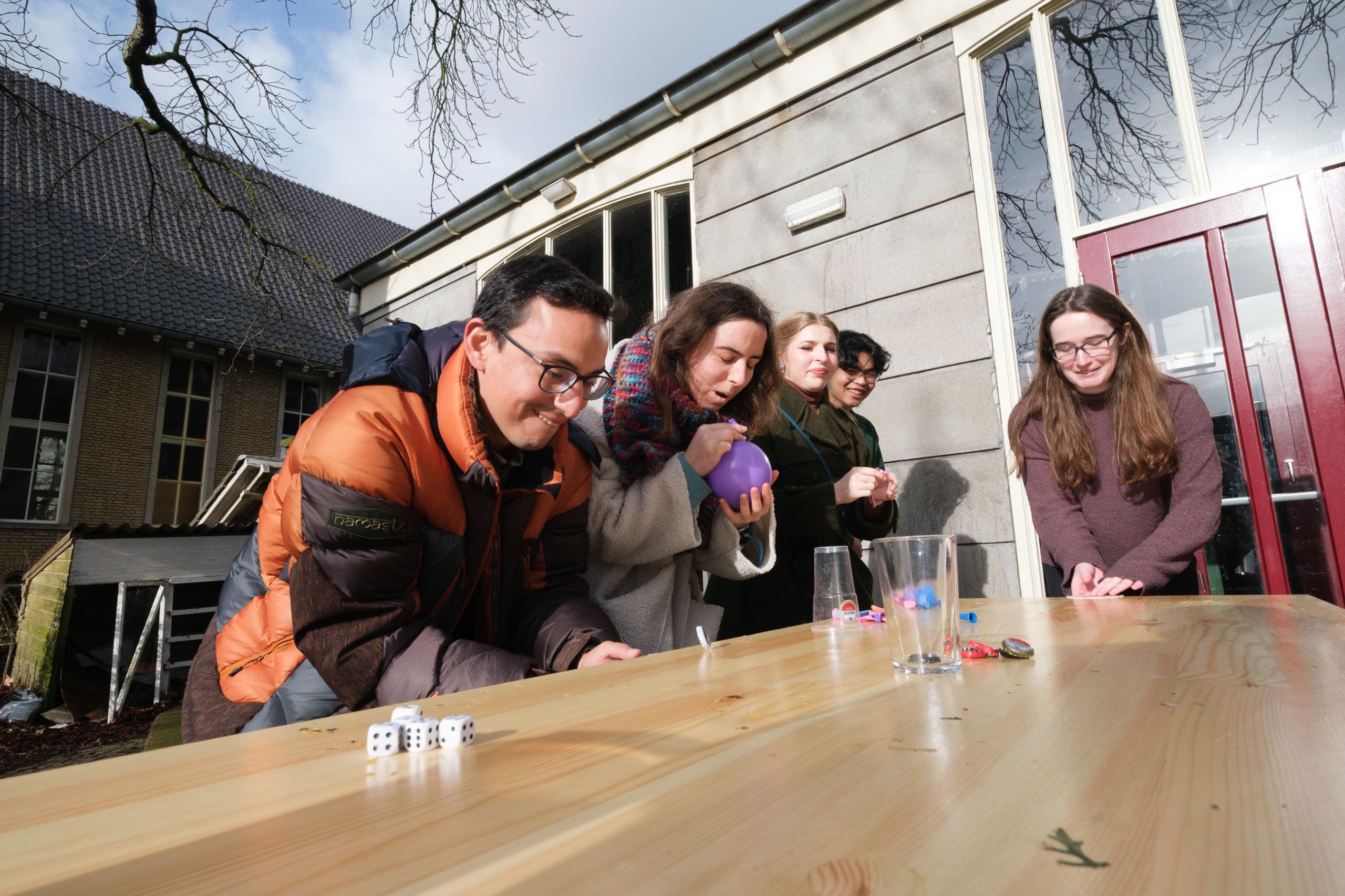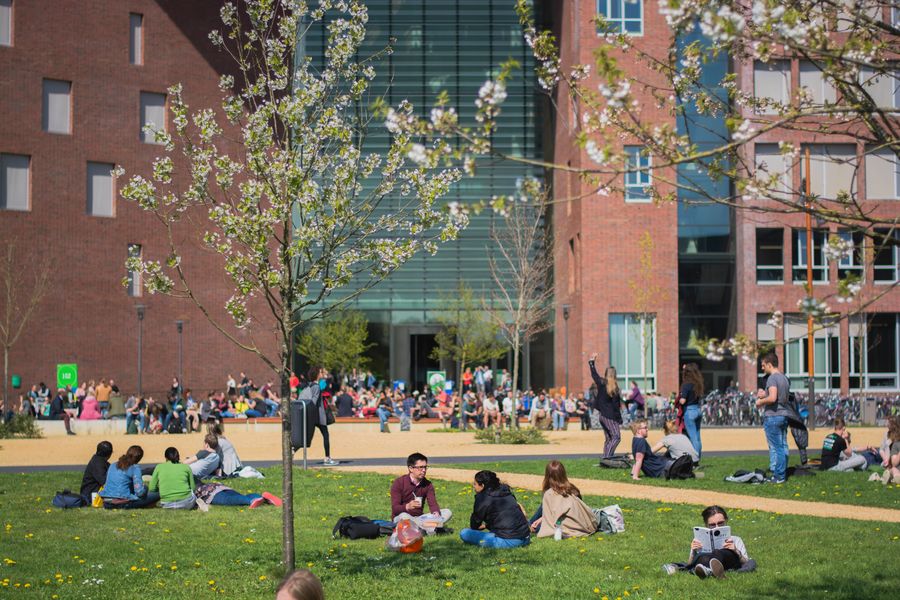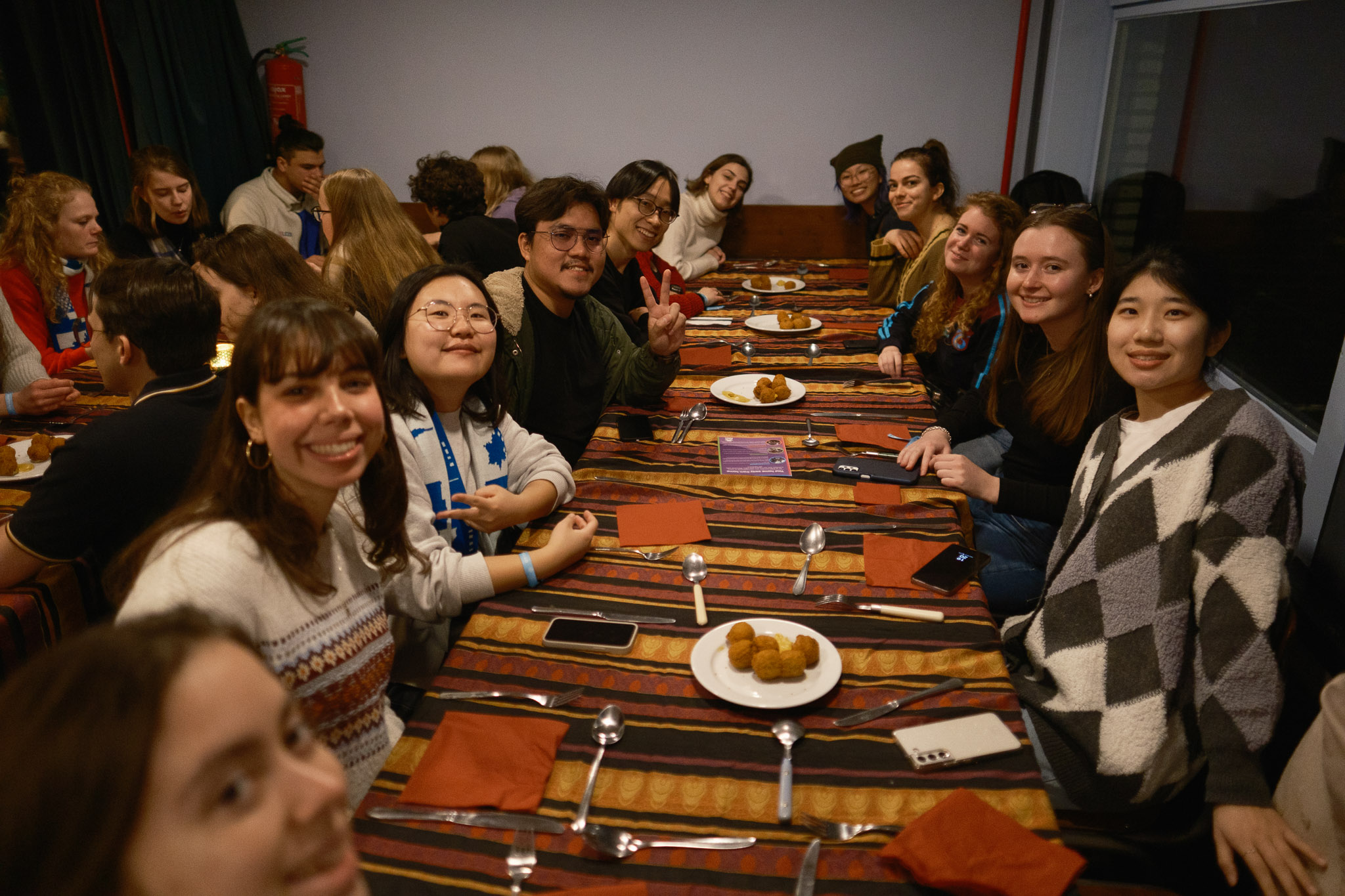All Dutch universities have joined forces to control the internationalisation of education while still adhering to the desired autonomy in decision-making. Rector magnificus Arthur Mol: ‘It is a test case for self-governance.’
Last summer, all universities joined forces and agreed to devise a plan to control the influx of international students. The desire to do so sprung from a lack of housing, packed lecture halls and high work pressure experienced by teaching staff. The plan they have now published states that all of the large bachelor programmes will also be offered in Dutch, while some of the English-spoken bachelors will transition to Dutch.
Taking initiative, or ‘self-control’, in Mol’s words. The rector and Anton Pijpers, president of the board at Utrecht University, took the lead. Part of the plan is to control the international influx through so-called tracks. Mol: ‘Consider, for example, Aerial and Space Engineering in Delft. This is a popular programme that is offered in English. Every year, many students apply, and the best are selected. That may cause Dutch students to become excluded. That is why we want to introduce tracks: a Dutch-spoken track and an English-spoken one. Additionally, we want a numerus clausus for the English-spoken track, which means that universities will no longer enrol more students than they can handle. The universities need a tool to implement these changes: the Balance in Internationalisation law. Mol: ‘That law is now under scrutiny by the Council of State and must still be approved by the House of Representatives, but we can already start implementing the track plan. We are going to investigate what English-spoken bachelors can have a track.’
There is the risk that measures are enforced that are irrelevant for technical programmes
Arthur Mol
Joining forces leads to much discussion. The universities and cities differ. Mol: ‘Sometimes the issue is lack of housing, and sometimes the universities need international students, such as is the case at technical universities. Some universities, Amsterdam and Utrecht, for example, want to stop expanding, while others, such as Delft and Eindhoven, seek to grow. Some are located in regions experiencing retrenchment, such as Maastricht, which makes recruiting from the region crucial. With all these differences, how can you arrive at a joint plan? Moreover, changes must be gradual due to financing and the viability of programmes. We managed to do it, with a concrete plan through which we focus on reducing the influx of international students and the number of English-spoken bachelors while increasing the number of Dutch-spoken programmes and enhancing the Dutch language skills of both students and teachers.’
What will change in Wageningen?
‘All universities will report how many bachelor programmes they will offer with a Duthc-spoken track. In Wageningen, we have seven international bachelors. This Monday, I will discuss options for a track with all the programme directors.’
Why? We don’t have issues such as a housing shortage and crammed lecture halls.
‘Internationalisation is a societal debate, and we address the issues the sector faces. It would not be right if we said, “There is no shortage of housing in Wageningen; we won’t contribute.” It is, however, clear that the greater part of the contribution lies with the social science programmes and not the technical ones.’
Can’t universities that focus on these studies solve the issues themselves?
‘That would be possible. But in that case, we would fail to take control together. There is discussion on all manner of joint issues. How are universities profiled? For example, must all knowledge be offered at all of the universities? We don’t think it should. The ministry should allow us to make this choice.’
So, do you want to stay ahead of more direct control from the ministry?
‘That is partly the context for this collaboration. There is the risk that measures that are irrelevant to technical programmes are enforced. You can see this as a test case for self-governance in academic education in the Netherlands.’
How far should we take the joint approach?
‘It would have been a problem if the outcome of this trajectory had been that all programmes in Wageningen must switch to Dutch or if there was to be a mandatory reduction of the number of bachelor students per programme. Yes, that would have been a problem…’
…and would you have refused?
‘I don’t know; it has never been discussed as an option.’
Is WUR collaborating out of solidarity?
‘Yes. It is a collective problem, and we want to contribute to keeping the influx of international students into the bachelors manageable. We have been an international university from the moment we were founded. We have seen a stable influx of international students in the last two decades. International students remain welcome, and we will continue to recruit international talent. We continue to need and welcome international staff. Moreover, the masters’ programmes will all remain international.’

 International students during the 2024 Winter AID. Photo Guy Ackermans.
International students during the 2024 Winter AID. Photo Guy Ackermans. 


“Wageningen doesn’t have a housing shortage” is a controversial statement at best (https://www.wur.nl/en/show-longread/student-housing-in-wageningen-how-wur-idealis-and-the-municipal-council-are-addressing-the-issue.htm). One of my friends stayed here for six months as an exchange student and never found a permanent room. Instead he had to sleep on strangers’ couches for the first couple of weeks, then book a hotel for a further couple of weeks, and finish the remaining months in three different sublets. While this is an extreme example, it does show how housing is one of the biggest issues for international students. Simply because the situation is worse in other university cities doesn’t mean it is good in Wageningen.